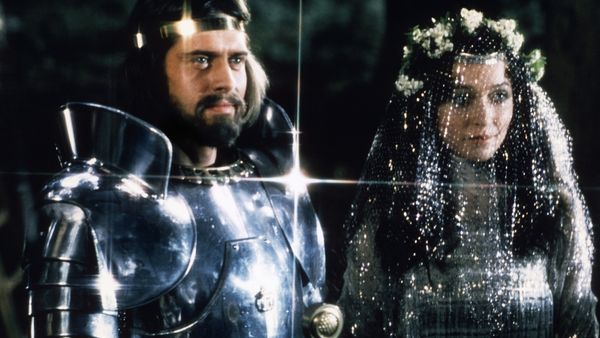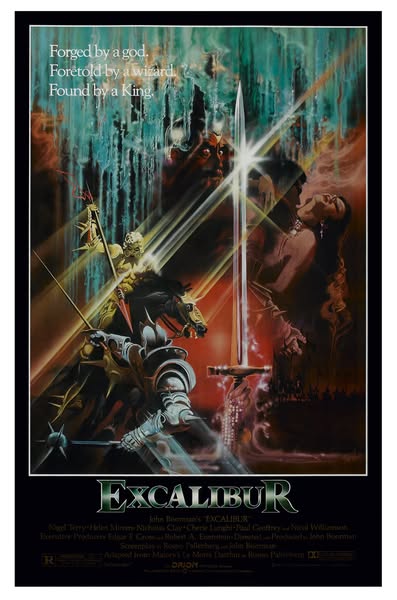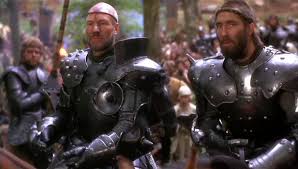Excalibur (1981)

Excalibur is a 1981 fantasy film directed by John Boorman, renowned for its ambitious retelling of the Arthurian legends. The film weaves together themes of chivalry, betrayal, and the quest for power, all set against a visually stunning backdrop that brings the mythic world of King Arthur and his knights to life.
The narrative centers on the rise and fall of King Arthur, from his birth and the legendary pulling of Excalibur from the stone to his eventual downfall. The story begins with the mysterious origins of Arthur, who is raised in obscurity without knowledge of his royal lineage. Once he becomes king, Arthur (Nigel Terry) establishes the Round Table, a symbol of unity and equality among his knights. The film explores the ideals of chivalry and honor as Arthur seeks to create a just kingdom.

A significant portion of the film revolves around the relationships between key characters, including Arthur, his half-sister Morgana (Helen Mirren), and the noble knight Lancelot (Nicholas Clay). Morgana’s ambition and desire for power lead her to betray Arthur, setting in motion a series of events that culminate in tragedy. The love affair between Arthur and Guinevere (Cherie Lunghi) also plays a crucial role, as it becomes a source of conflict that ultimately contributes to the kingdom’s downfall.
The film is notable for its striking visual style, marked by Boorman’s use of natural landscapes and elaborate set designs. The cinematography captures the raw beauty of the British countryside, enhancing the film’s epic quality. The use of practical effects and innovative lighting creates a dreamlike atmosphere that immerses viewers in the magical elements of the story.

The score, composed by Trevor Jones, adds to the film’s grandeur, blending orchestral music with haunting melodies that underscore the emotional weight of the narrative. The combination of visuals and music elevates the storytelling, making key moments resonate powerfully with the audience.
Excalibur also delves into the themes of power and its corrupting influence. The sword Excalibur itself symbolizes divine right and authority, and its loss signifies the fall of Arthur’s reign. The film raises questions about the nature of destiny, the responsibilities of leadership, and the moral complexities faced by those in power.

While Excalibur received mixed reviews upon its release, it has since gained a cult following for its bold storytelling and visual artistry. The film’s interpretation of Arthurian legend is both reverent and innovative, combining traditional elements with a modern sensibility.
In conclusion, Excalibur is a visually striking and thematically rich exploration of the Arthurian legends. With its compelling characters, epic scale, and profound themes, the film stands as a significant entry in the fantasy genre. Whether appreciated for its artistic achievements or its engaging narrative, Excalibur continues to captivate audiences, inviting them to ponder the timeless tales of honor, betrayal, and the quest for greatness.











